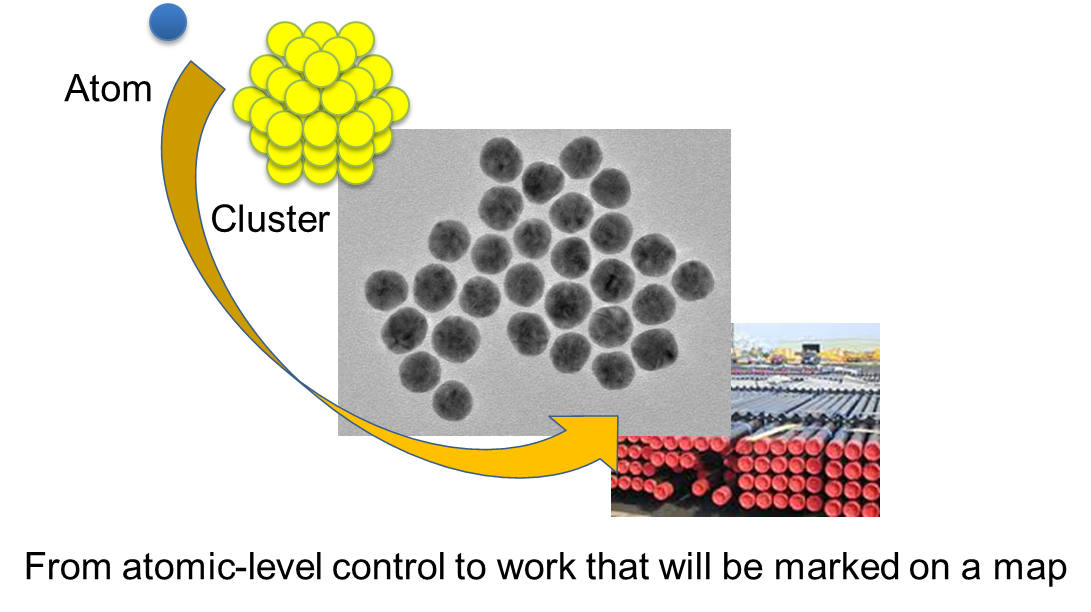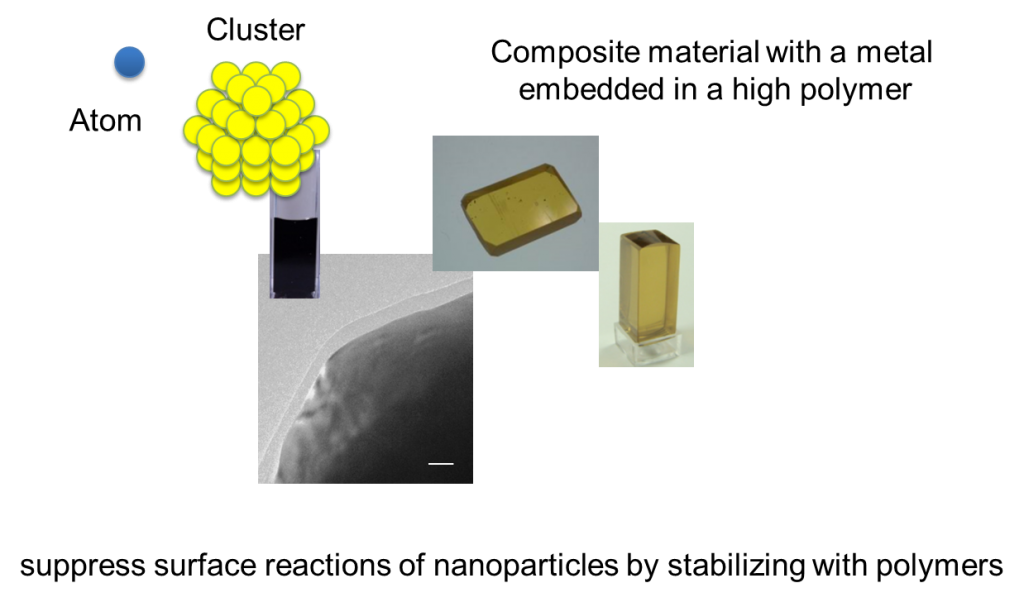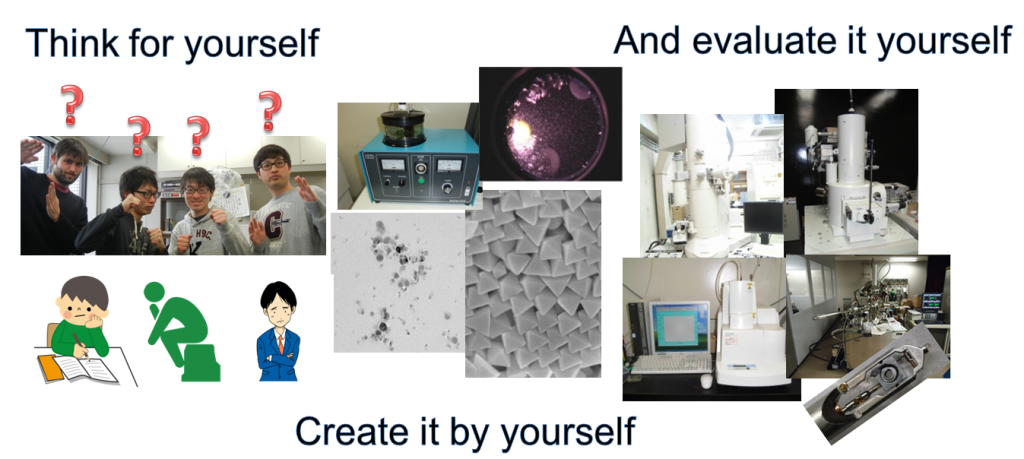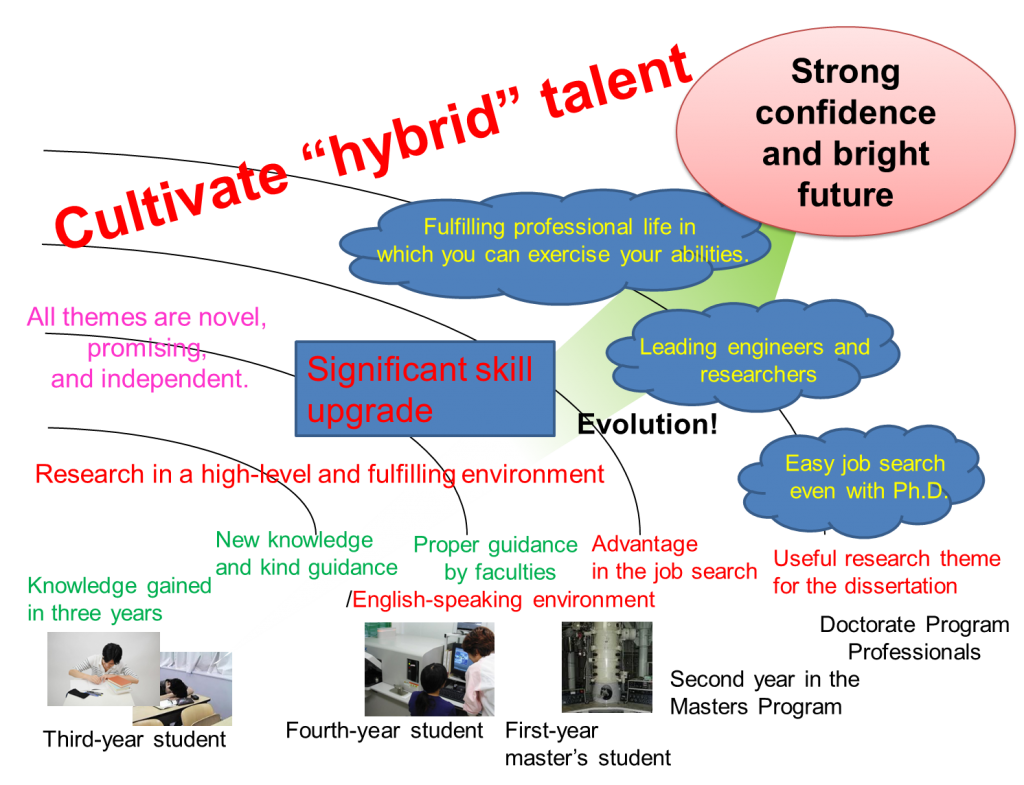Let’s study together at our Novel Materials Hybrid Engineering lab!
Summary and Activity Guidelines of Research
In the Novel Material Hybrid Engineering Laboratory, we are engaged in the challenging study of creating hybrid materials, namely composite materials, and exploring their application potentials. Creating new hybrid materials involves learning about the surfaces and interfaces of the components and controlling them to combine these components. The important factors here are nanomaterials and nanoparticle materials as well as the oxidation of their surfaces. We are always thinking about “surfaces and interfaces and creating new materials by combining materials with different characteristics.”
We are always studying, learning, creating, and making progress toward this goal. Join us in our journey as we search for new materials in the Novel Material Hybrid Engineering Laboratory.
From atomic-level control to work that will be marked on a map
From the design and synthesis of a nanoparticle comprising approximately 10 atoms to a bulk metallic material used in oil fields to extract oil, the Novel Hybrid Lab continues to develop materials that are in demand based on our unique ideas and wide-ranging approaches. Through these research activities, we seek to create technology that is capable of contributing to society and to educate future talent who will play a major role in this contribution.
A new nanomaterial based on new ideas
“Metallic materials can be controlled by organic molecules.” A combination of metallic materials and organic materials may seem like oil and water at first glance; however, with a proper intermediary, these materials begin to work together as important partners. To make this happen, we need to know the properties of both metals and organic molecules and develop a method to bond them together. We are developing such methods that enable us to structure nanomaterials based on new ideas and by taking advantage of true nano-effects.
“Organic” sounds Greek to students in the Applied Material course. However, even with no experience in handing organic materials, you will gradually gain knowledge in the Novel Material Hybrid Engineering Laboratory, and we will make sure that you will develop “hybrid” talent that cannot be found anywhere else.
Creation of materials for the future:
As members of the Division of Material Science and Engineering of the Applied Materials Course, we are dedicated to fostering experts in the field of material science as well as creating materials that will make great contributions in the future.
Think it for yourself, create it by yourself, and evaluate it yourself
In the Novel Hybrid Lab, our research does not involve only evaluating materials created by others. We think for ourselves, create materials ourselves, and evaluate them ourselves. Furthermore, we always attempt to tackle the challenge of creating new materials. By doing so, your skills will show a dramatic leap. Even if you ask an analysis device operator to perform analysis in the future, the skills you learned in the Lab will be useful. For the operator to conduct proper evaluation, you will be able to communicate the points of the analysis accurately.
Cultivating “hybrid” talent
The Novel Material Hybrid Engineering Laboratory is the only lab that pays attention to and investigates materials other than metals in a significant way. In addition to metallic materials science, the students in the laboratory will learn all types of materials that exist around us, from metal oxides and organic compounds to high polymers, which will surely give the graduates of our lab a significant advantage over other students. You will be one step ahead of others in both straightforward and diagonally forward directions. The Novel Hybrid Lab will “hybridize” your capacity. If you are a company representative, we highly recommend the students of the Laboratory.
International environment
The lab has a very international atmosphere. Students in our lab are from all over the world. During the past five years, we have had students from many foreign countries including China, India, Italy, France, and the Czech Republic, studying side by side with Japanese students. We have professors from foreign countries and are accepting internship students from Taiwan and other countries.
Many of our faculty members also have experiences studying in Switzerland, France, and the U.S.A. Students can experience virtual studying abroad without physically going abroad. Some of our students are motivated and go abroad for internships. If you are motivated, the education you receive at the Novel Hybrid Lab will make you a leader who can lead the world in the field of materials science.




